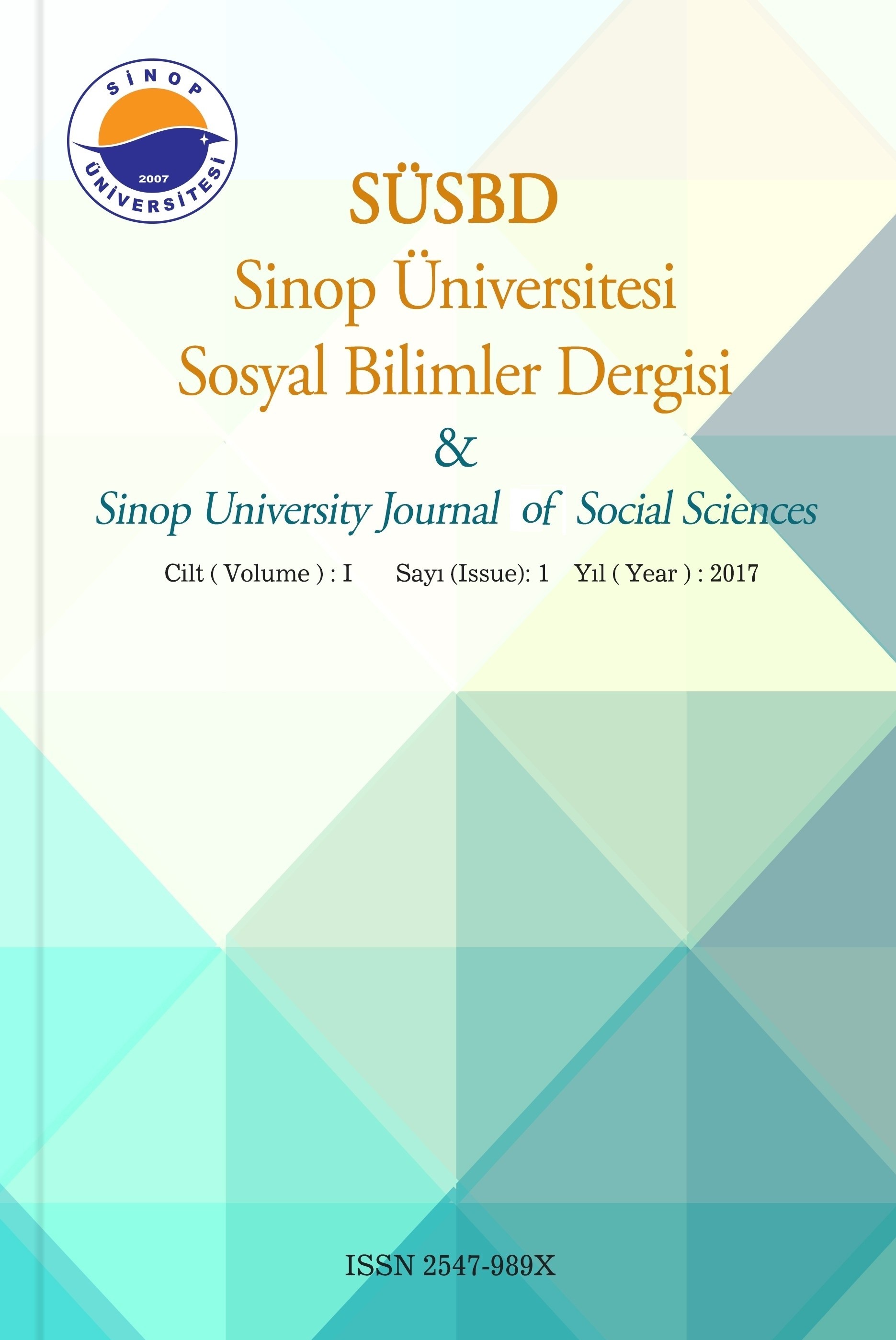ÖĞRETİMDE DEĞİŞEN MEKÂN VE YENİ YATAY ONTOLOJİ
Mekâna sahip olmak bir etkileşim biçiminde temel öğelerden biridir. Öğretim mekânın yüz yüze veya uzaktan-dijital bir biçimde kullanımı akademisyen ve öğrenciler arasındaki iktidar ilişkisini derinden etkilemektedir. Halihazırda yüz yüze öğretimde kullanılan derslik ve amfiler -yapısı gereği- kapatma, gözetleme ve denetlemeye elverişli mekânlardır. Öğretimde mekân bu şekilde kullanıldığında taraflar arasındaki ilişkiyi zorunlu olarak ve belirli bir ölçüde hiyerarşik bir biçime dönüşmektedir. Öte yandan günümüzde öğretim mekânı sanal bir yöne doğru evrilmektedir. Dijitalleşme ve onun beraberinde getirdiği bağlantısallık, sahip olduğu sanallık ve somut bir mekân tanımazlık nedeniyle yapısı gereği hiyerarşik ilişki biçimine uygun değildir. Bu durum bir taraftan eskisine göre çok daha yatay ve bağlantısal bir öğrenme anlamına gelmekte ve diğer taraftan öğrenci ve akademisyenler arasındaki ilişki biçimini yeniden yapılandırmaktadır. Bu çalışmada öğretimin sanallaşmasıyla, üniversitelerde öğrenci ve akademisyenler arasındaki iktidar ilişkisini nasıl değişebileceği tartışılmaktadır.
Anahtar Kelimeler:
Öğretim Mekânı, Dijital Öğretim, İktidar ilişkileri, Üniversite
Changing Environment in Teaching and New Horizontal Ontology
Owning space is a fundamental element in any form of interaction. The face-to-face or remote-digital use of the teaching space deeply affects the power relationship between academics and students. Classrooms and lecture halls currently used in face-to-face teaching are -due to their structure- suitable places for closure, surveillance and inspection. When space is used in this way in education, the relationship between the parties necessarily and to a certain extent turns into a hierarchical form. On the other hand, today's teaching space is evolving in a virtual direction. Due to digitalization and the connectivity it brings, its virtuality and lack of a concrete place, it is not suitable for hierarchical relationship form by its nature. On the one hand, this means a much more horizontal and connective learning than before, and on the other hand, it restructures the relationship between students and academics. In this study, it is discussed how the power relationship between students and academicians in universities can change with the virtualization of teaching.
Keywords:
Teaching medium, Digital teaching, Power relations, University,
___
- Apple, W.M. (2012). Eğitim ve İktidar. (E. Bulut, Çev.) Kalkedon Yayınları.
- Ateşoğlu, N. (2022). Mikro Direnişler: Eleştirel Bir Pedagoji İncelemesi. Kriter Yayınevi.
- Besley, T. (2005). Foucault, truth telling and Technologies of the self in schools. Journal of Educational Enquiry, 6, 1, 76-89.
- Birchall, C. (2017). Shareveillance: the dangers of openly sharing and covertly collecting data. University of Minnesota Press.
- Bozkurt, A. (2019). Ağ toplumu ve öğrenme: Bağlantıcılık. Akademik Bilişim. (S. 601-606).
- Clinton, G., Lee, E., & Logan, R. (2011). Connectivism as a Framework for Creative Productivity in Instructional Technology. In Advanced Learning Technologies (ICALT), 2011 11th IEEE International Conference on (pp. 166-170). IEEE.
- De Certeau, M. (2009). Gündelik Hayatın Keşfi I, Eylem, Uygulama, Üretim Sanatları. (L.A. Özcan, Çev.) Dost Kitabevi Yayınları.
- De Landa, M. (2018). Yeni Bir Toplum Felsefesi. (S. Çalcı, Çev.) Kolektif Kitap.
- Deleuze G. (2021). Kontrol toplumunu, sanat ve direnme eylemi. https://www.youtube.com/watch? v=JgMOjjOdNmU&t=55s. Accessed 1October 2020.
- Downes, S. (2011). 'Connectivism' and Connective Knowledge. http://www.huffingtonpost.com/ stephen-downes/connectivism-and-connecti_b_804653.html
- Fawns, T. (2019). Postdigital Education in Design and Practice. Postdigit Sci Educ 1, 132–145. https://doi.org/10.1007/s42438-018-0021-8
- Feenberg, A. (2017). The online education controversy and the future of the univer-sity. Foundations of Science, 22(2), 363–371. https://doi.org/10.1007/s10699-015-9444-9.
- Freire, P. (2019). Ezilenlerin Pedagojisi. (D. Hattatoğlu ve E. Özbek Çev.) Ayrıntı Yayınları.
- Foucault, M. (2013). Güvenlik, Toprak, Nüfus. Collige De France Dersleri (1977-1978), (F. Taylan, Çev.) İstanbul Bilgi Üniversitesi Yayınları.
- Foucault, M. (2016). Özne ve İktidar. (I. Ergüden, O. Akınbay, Çev.) Ayrıntı Yayınları.
- Foucault, M. (2019). Hapishanelerin Doğuşu. (M.A. Kılıçbay, Çev.) İmge Kitapevi.
- Gatto, J.T. (2019). Aptallaştıran Eğitim. (S. Behçet, Çev.) Pedagoji Yayınları.
- Gatto, J.T. (2020). Eğitim: Bir Kitle İmha Silahı, Zorunlu Eğitimin Karanlık Dünyasında Bir Yolculuk. (M.A. Özkan, Çev.) Edam Yayınları.
- Hollander, J. B. (2021). The pandemic is taking higher education back to school. University. World News, 23 January.
- Jandrić, P., Knox J., Besley T., Ryberg, T., Suoranta, J. & Hayes, S. (2018) Postdigital science and education, Educational Philosophy and Theory, 50:10, 893-899, DOI: 10.1080/00131857.2018. 1454000
- Knox, J. (2019). What Does the ‘Postdigital’ Mean for Education? Three Critical Perspecti-ves on the Digital, with Implications for Educational Research and Practice. Postdigit SciEduc 1, 357-370 (2019).
- Kop, R. (2011). The challenges to connectivist learning on open online networks: Learning experiences during a massive open online course. The International Review of Re-search in Open and Distance Learning, 12 (3), 19-38. http://www.irrodl.org/index.php/irrodl/article/view/882/1689
- Kıral, B. (2020). Nitel bir veri analizi yöntemi olarak doküman analizi. Sosyal Bilimler Enstitüsü Dergisi, 15, 170–189. https://dergipark.org.tr/tr/download/article-file/1156348
- McLuhan, M. (1967). The Medium is The Message, The Extensions of Man. McGraw-Hill Paperback
- Nozick, R. (1993). The nature of rationality, Princeton University Press.
- Rose, E. (2017). Cause for optimism: engaging in a vital conversation about online learning. Foundations of Science, 22(2), 373-376. https://doi.org/10.1007/s10699-015-9445-8.
- Siemens, G. (2004). Connectivism: A learning theory for the digital age. http://www. elearnspace.org/ Articles/connectivism.htm.
- Tüzün, F., & Yörük-Toraman, N. (2021). Pandemi döneminde uzaktan eğitim memnuniyetini etkileyen faktörler. Ömer Halisdemir Üniversitesi İktisadi ve İdari Bilgiler Fa-kültesi Dergisi, 14(3), 822–845.
- Ülger, K. (2021). Uzaktan eğitim modelinde karşilaşilan sorunlar-firsatlar ve çözüm önerileri. Uluslararası Güncel Eğitim Araştırmaları Dergisi, 7(1), 393-412.
- Wach, E. (2013). Learning about qualitative document analysis.
- https://opendocs.ids.ac.uk/opendocs/bitstream/handle/20.500.12413/2989/PP%20In-Brief%2013%20QDA%20FINAL2.pdf?sequence=4
- ISSN: 2547-989X
- Yayın Aralığı: Yılda 2 Sayı
- Başlangıç: 2016
- Yayıncı: SİNOP ÜNİVERSİTESİ
Sayıdaki Diğer Makaleler
A GALANCE AT BILINGUALISM AS A SOCIAL, LINGUISTIC AND EDUCATIONAL MATTER IN TURKEY
Batuhan MEDETOĞLU, Yusuf Bahadır KAVAS, Mahmut ÖZTÜRK
ORTAOKUL MATEMATİK DERS KİTAPLARINDAKİ METİN VE METİN DIŞI ÖĞELERİN DEĞERLER AÇISINDAN İNCELENMESİ
GÜNDELİK HAYAT VE GÜNDELİK HAYATIN SOSYOLOJİSİ: BİR LİTERATÜR ÇALIŞMASI
İMPARATOR DIOCLETIANUS’UN POLİTİK İRADESİ
ÖĞRETİMDE DEĞİŞEN MEKÂN VE YENİ YATAY ONTOLOJİ
EMPERYALİZMİN GÖLGESİNDE ANADOLU’DA ERMENİLER VE MİSYONERLİK FAALİYETLERİ
